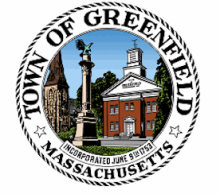In New England, Greenfield Votes For a Municipal Network Too
It wasn’t just Colorado cities and counties along with Iowa communities voting this week. Back east, Greenfield, Massachusetts also rushed to the polls to support local Internet choice.
Greenfield is planning to use a combination of fiber and Wi-Fi to deliver services - an approach that has had limited success in the past due to the technical limitations of Wi-Fi.
The Vote
At Tuesday’s Annual Meeting, residents voted on the future of high-speed Internet access in the town. The referendum, the first step in creating a municipal broadband network, saw a landslide victory.
The people gave a resounding message that they wanted to pursue a network: 3,287 people voted in favor; only 696 were opposed. According to the local paper the Recorder, this nonbinding ballot referendum allows the town to create a nonprofit to run the municipal broadband network.
Currently there is a pilot program on two streets – giving residents a taste of community-owned high-speed Internet. This pilot program started in mid-October and provides free Wi-Fi on Main and High Streets. If voters had rejected the ballot referendum, the town would have ended the pilot program and only created an institutional network for the municipal and school buildings. Now, with the referendum passed, they can implement the plan for high-speed Internet access.
The Plan for Broadband



